Corporate Citizenship
Corporate Sustainability at Tata Steel has always meant focusing on the environment, people and society. The Company carries out its business activities in ways that seek to enhance the Earth’s resources rather than deplete them, thereby helping create a sustainable world for future generations to inherit. This is achieved by focusing on a number of initiatives and principles that are consistently applied across the Group. In this section we highlight some of these initiatives in order to illustrate our approach.
Environmental sustainability has become an increasingly important item on the Tata Steel Group agenda. The Group’s various operations across the globe have all undertaken numerous initiatives to realise improvements in this area.
At Port Talbot in the UK, Tata Steel Europe (TSE) has inaugurated its BOS Gas Recovery Project, which has various emissions reduction and energy efficiency objectives. The new plant will reduce the site’s carbon dioxide (CO2) emissions by some 2,40,000 tonnes per year and its dust (PM10s) emissions by 40 tonnes. The project has brought Port Talbot closer to realising its ambition of self-sufficiency in energy by reducing the plant’s demand for natural gas from the national grid. This investment has been the largest in the UK steel industry since the Tatas acquired Corus in 2007.
Tata Steel Thailand (TSTH) is highly dependent on the use of natural resources and has consequently incorporated energy management into its Total Productive Maintenance (TPM) activities. Through various technical innovations the company has managed to save 1.8 million Baht per year on its electricity costs. Waste water treatment and the elimination of dust during the production process are also areas of focus.
TSTH is also focusing on Greenhouse Effect Management, with a defined goal of restricting its CO2 emissions to 1.0 tonne per tonne of liquid steel produced by 2012. Other projects include ‘The Big Cleaning Day’ project; ‘The Local Forest Rehabilitation’ project and ‘The Steel Products for Environmental Preservation’ project. The ‘Save Our Earth’ programme is an effort to campaign against global warming.
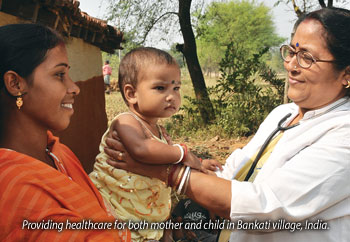
Mother and Child Health – Several maternal and neonatal health, immunisation and family planning programmes have touched over 27,000 lives in India.
Adolescent Reproductive and Sexual Health (ARSH) – More than 53,000 adolescents in India have been covered through the various adolescent health programmes that are aimed at giving accurate information, building skills and seeking counselling during crises etc.
HIV/AIDS Initiatives – Over 60,000 people have been made aware of the AIDS scourge through 1,178 awareness programmes in 2010. And over 250,000 people have been covered in the last 5 years in India alone. The objective is the rehabilitation of HIV/AIDS infected people and providing nutritional and educational support to children from HIV+ families.
Lifeline Express – The Lifeline Express, the world’s first hospital on rails, offers on-the-spot diagnostic, medical and advanced surgical treatment for preventive and curative interventions across rural India. Over 4,000 patients have been treated and 702 surgeries have been successfully conducted in 2009-10.
Comprehensive Health Screening of Employees and Families – This NatSteel initiative made available intervention programmes such as weight management, hypertension and high cholesterol, and smoking cessation workshops to help employees lead a healthier life.
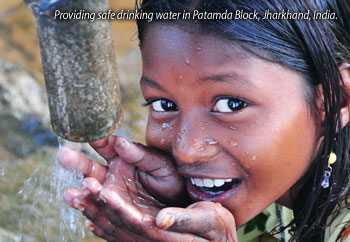
Drinking Water – The problem of access to uncontaminated drinking water in Indian villages was addressed by providing potable water to communities through tankers or piped water distribution systems and hand pumps, or via the construction/repair of wells to create self-sufficiency for over 50,000 people. To address this issue of 100% coverage of families with drinking water, the Tata Steel Rural Development Society (TSRDS) proposes to take up the drinking water project with a goal to ensure portable drinking water supply to every household in the Company’s operational areas.
Civic Amenities – In an arrangement that is unique in India, the Jamshedpur Utilities and Services Company (JUSCO) provides comprehensive urban infrastructure services and caters to 0.7 million people. Jamshedpur has been selected by the United Nations to participate in its ‘Global Compact Cities’ programme.
Building Entrepreneurs – Functioning as a wholly-owned subsidiary of Corus, the aim of UK Steel Enterprise (UKSE) is to improve the economies of those areas of the UK most affected by changes in the steel industry. It offers business information and planning advice, as well as loans and investment for start-ups and expanding businesses. To counter the mothballing of the steelworks at Teesside, UKSE offered a combination of grants and loans for various start-ups.
‘Building Beyond Borders’ – This TSTH programme reaches out to the underprivileged elderly and to less fortunate children and youth in the area of education.
‘Grow Smart with Tata Steel’ – This project is aimed at encouraging learning and self-development in students from remote areas of India. It also focuses on spreading knowledge through vocational training for adults.
Employee Volunteerism – One of the primary focus areas of Tata Steel, India is to involve employees and encourage them to volunteer their services for Community Development Programmes. A total of 136 employees rendered their voluntary services in 2010 in various projects.
In keeping with its stated policy, education is an area of special emphasis and Tata Steel India has made available several scholarships and programmes to encourage quality education. Among these are the Jyoti Fellowship for financial assistance; the Sakshar Samaj programme for functional literacy in adults; the Moodie Endowment for financial assistance to students pursuing professional courses; Coaching Programmes; Early Child Education (ECE) Centres and Camp Centres to accelerate education.
Continuing the same theme, NatSteel has awarded scholarships to 150 underprivileged students, enabling them to acquire education in good schools.
Several agricultural programmes in the states of Jharkhand and Orissa in India are working towards improving agricultural productivity and helping sustain the livelihoods of poor farmers and their families. Among the encouraging results have been an increase in income, food security for 12 months in every household, lower migration, additional income for education and a visible improvement in health.
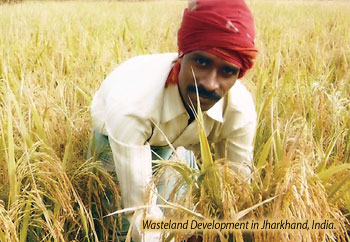
A large proportion of land (around 9%) in the state of Jharkhand in India, is considered to be wasteland. To bring this land into productive use, the TSRDS, in collaboration with the National Horticulture Mission, has launched a 5-year Horticulture Project in the East Singhbhum district of Jharkhand. During 2009-10 an additional area of 2,075 acres were covered under Hoticulture Crops (mango and cashew) and 373 acres of wasteland was developed in various locations.
The Preservation and promotion of tribal culture and heritage is the main focus of Tata Steel India’s Tribal Cultural Society (TCS). TCS promotes various initiatives, such as the Kati tournament (Kati is a traditional game played in tribal villages of Jharkhand and Orissa); the Tribal Culture Centre (TCC) that illustrates the ethnic identities of major tribal communities of Jharkhand; the Gram Shree Mela – an event that provides an opportunity for rural producers to sell their products directly in major markets; the Artisans’s Hub – a project designed to support tribal artisans’ families and provide them with a stable monthly income.
The 18th Gram Shree Mela, 2010 accomplished its best ever sales record of over Rs. 92 lakhs, a landmark achievement.

Tata Steel has always believed in sport as an essential part of a society’s mental and physical wellbeing. The Corus Kids of Steel programme is an example of an initiative in this area. The objective of this programme is to nurture young talent at grass roots level and develop community participation in the UK’s fastest-growing sport, triathlon. The Corus Kids of Steel events make the sport accessible to all, regardless of their ability.
In India, the Tata Football Academy (TFA) has long been involved in nurturing and training young footballers in a scientific way. It has an outstanding record of producing players for the Indian national team. Archery is another sport in which Tata Steel has created champions who have competed at the national level, bringing home international medals from Archery World Cups.
The Tata Relief Committee (TRC) is a voluntary organisation promoted by the Tata Group of companies to serve people – often society’s poorest – whose lives have been severely affected by natural calamities. During FY 10 Tata Steel and TRC aided the people of the Mandar block of Ranchi district in Jharkhand in the wake of cyclone “Aila”, which destroyed villages, leaving hundreds of people homeless. Relief materials to the tune of 1,000 tarpaulin sheets, medicines worth Rs. 80,000 and 3,000 packets of consumables and other essentials were distributed.
NatSteel was also active in the support of people affected by the floods in Vietnam’s Quang Binh province. Financial aid and food stuff were made available to the local community.
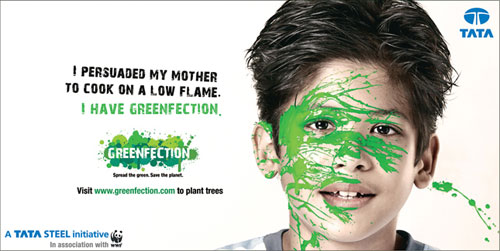

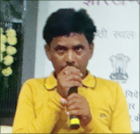
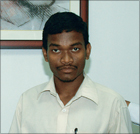
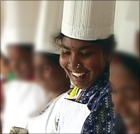


 A Safety Excellence Journey was rolled out at the Group’s wire mills in Thailand, while NatSteel has also been recognised for its efforts in this area. The noise and dust level in the Xiamen plant has been identified as below the minimum required level, according to the Occupational Health Screening organised by the government, and remedial efforts put in place. Emergency Assembly Points and Emergency Drill and Experience Sharing Sessions are organised to enhance staff awareness of safety. Zebra crossing walkways are provided along the safety passageway for visitors inside the Xiamen plant.
A Safety Excellence Journey was rolled out at the Group’s wire mills in Thailand, while NatSteel has also been recognised for its efforts in this area. The noise and dust level in the Xiamen plant has been identified as below the minimum required level, according to the Occupational Health Screening organised by the government, and remedial efforts put in place. Emergency Assembly Points and Emergency Drill and Experience Sharing Sessions are organised to enhance staff awareness of safety. Zebra crossing walkways are provided along the safety passageway for visitors inside the Xiamen plant. 